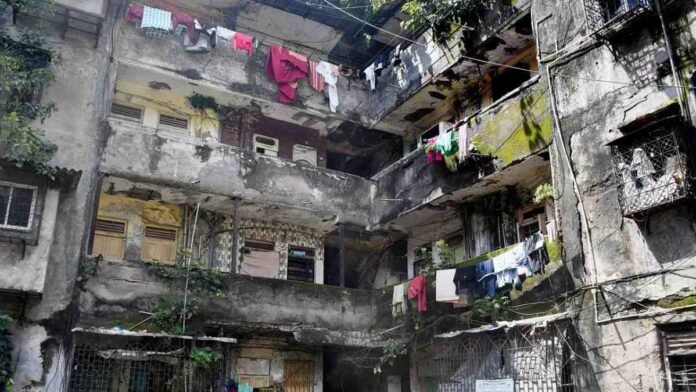The BMC has taken action against 27 dilapidated buildings. The civic
authorities have disconnecting their electricity and water connections due to residents’ reluctance to evacuate them.
BMC has taken against 27 dilapidated buildings in Mumbai. The civic authorities have implemented their policy by taking action against residents of certain buildings who have declined to vacate their homes despite receiving official notices.
In a recent development, the Brihanmumbai Municipal Corporation (BMC) has taken action against 27 dilapidated buildings in the city by disconnecting their electricity and water connections. According to BMC officials, the recent action was carried out in compliance with policy due to the residents’ reluctance to evacuate the buildings.
As per the BMC policy, it is imperative to carry out a structural audit for any building that has completed a span of 30 years. According to official records, a staggering 429 buildings have been classified under the C-1 category, signifying an urgent need for their immediate demolition. As per the latest data released by BMC, a total of 193 buildings have been demolished by the civic body while 82 buildings are presently lying vacant.
Buildings falling under the C-1 category have been served notices by the BMC. Following the issuance of notices, residents were given a designated timeframe, typically ranging from one week to 15 days, to evacuate the premises. According to an official, the BMC holds the authority to cut off the water and electricity supply if the residents fail to comply. According to an official, in situations where legal action has been taken, such as in the instance of the 101 building, the BMC will act in accordance with court directives.
It is a simple task for the general public to identify a dilapidated building. According to the official, signs such as leaning pillars, cracks in the structure, or a partial collapse are indicative of the need for a structural audit. In addition to the C-1 category, there exist two other categories, namely C-2 and C-3. According to the official, the structural auditor has suggested that the C-2 category indicates the need for major repairs, while the C-3 category requires only minor repairs.



